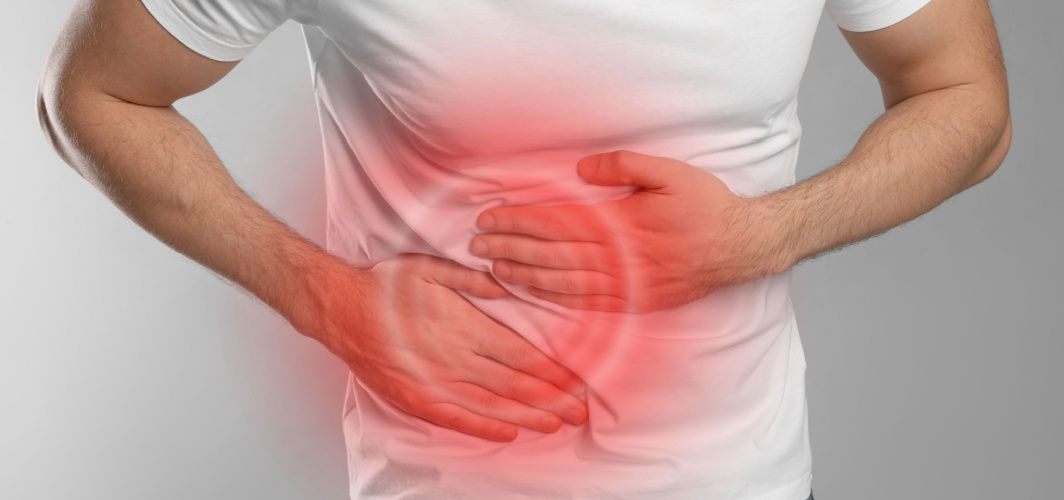General Health
From Surgery To Antibiotics, Know Everything About Appendicitis Treatment
5 min read
By Apollo 24|7, Published on - 09 March 2023, Updated on - 20 June 2023
Share this article
0
2 likes

What we all believed for years is that the small, finger-like protrusion sticking out of the gastrointestinal tract, called the appendix, is a vestigial organ. However, researchers have been trying to figure out if that's at all true. And after years of research, they might have developed a few theories, one of which states that it contains lymphatic tissue that carries white blood cells, which can help grow bacteria beneficial for the gut.
Vestigial or not, the appendix resides in the body and like any other organ, it is susceptible to infections. When the appendix gets inflamed or infected, the condition is called appendicitis.
Appendicitis can cause tremendous pain and discomfort. That is why it's essential to know the signs and symptoms of appendicitis and the different treatment options available.
When Should You See a Doctor?
Appendicitis typically starts with a dull pain around the navel or upper abdomen, which may then migrate to the lower right abdomen and intensify. Other common symptoms include nausea, vomiting, loss of appetite and a low-grade fever. In some cases, individuals may also experience constipation, diarrhoea or difficulty passing gas.
If you experience any of the symptoms of appendicitis, you should see a gastroenterologist immediately. Delaying treatment can lead to complications such as a ruptured appendix, which can severely infect the lining of your abdomen. Doctors may use blood tests, urine tests, ultrasounds and Computed Tomography (CT) scans to diagnose appendicitis.
Potential Complications of Appendicitis
If left untreated, appendicitis can lead to several complications including:
- Ruptured appendix: If the appendix bursts, it can release bacteria, stool and other harmful substances into the abdomen, causing a potentially life-threatening infection called peritonitis.
- Abscess: An abscess is a collection of pus that can form near the appendix. If left untreated, it can spread to other body parts causing further complications.
- Bowel obstruction: In some cases, the inflammation caused by appendicitis can cause a blockage in the intestines, leading to severe pain and nausea.
Treatment for Appendicitis
1. Surgery
The primary treatment for appendicitis is surgery, known as an appendectomy, which involves the removal of the inflamed appendix. Two types of surgeries are usually performed - open appendectomy and laparoscopic appendectomy. The choice of surgery depends on the severity of the case, the surgeon's advice and the patient's preference.
- Open Appendectomy: An open appendectomy is a surgical procedure that involves making a single incision in the lower right abdomen to remove the appendix. After the appendix is removed, the incision is closed using stitches or staples. This procedure is typically used for severe cases of appendicitis or when the appendix has ruptured.
- Laparoscopic Appendectomy: A laparoscopic appendectomy is a minimally invasive surgical procedure that involves making small incisions in the abdomen. A laparoscope, a thin tube with a camera and light on the tip, is inserted into one of the incisions to view the appendix. Surgical instruments are then inserted through the other incisions to remove the appendix. This procedure is typically used for less severe cases of appendicitis.
Medicine for pain relief may also be given to the patient while in the hospital. They may also be instructed to use warm compresses over the surgical site to reduce discomfort.
2. Antibiotics
If appendicitis is detected early and has not yet caused the appendix to rupture, antibiotics may be prescribed to treat the infection. Antibiotics can help to reduce inflammation and prevent the spread of infection. The type of antibiotics prescribed will depend on the severity of the infection, the age and health of the patient and any allergies or medical conditions they may have. Commonly used antibiotics include penicillin, cephalosporins and metronidazole.
3. Drainage
In some cases of appendicitis, particularly when the appendix has ruptured and caused an abscess to form, drainage may be necessary. An abscess is a collection of pus that forms as a result of infection and inflammation.
The abscess may be drained using a procedure called percutaneous drainage. This involves inserting a small needle or catheter through the skin and into the abscess to allow the pus to drain out. The drainage is usually guided by ultrasound or CT scan to ensure accuracy. The catheter is left in place for several days to continue draining the abscess.
Recovery After Appendicitis Treatment
After discharge from the hospital, the patient is encouraged to rest and not perform strenuous activities. The recovery period will depend on the severity of the condition and the type of treatment received but most people can return to their normal activities within 2 to 4 weeks after surgery.
During the first few weeks of appendicitis surgery, regular visits to the doctor may be required to check for any possible signs of infection. With prompt treatment and proper care, the chances of recovery will be faster.
In conclusion, a proactive approach to preventing and treating appendicitis is key. Regular visits to a physician, prompt recognition of the signs and symptoms and intervention at the right time are essential in avoiding a potentially life-threatening infection.
FAQs
1. What is the most common age group affected by appendicitis?
Appendicitis can occur at any age but it is most common in individuals between the ages of 10 and 30 years.
2. How is appendicitis diagnosed?
Appendicitis is typically diagnosed through a physical examination and medical history including a review of symptoms. Additional tests such as blood tests, urine tests or imaging tests, may also be used to confirm the diagnosis.
3. Can appendicitis resolve on its own without treatment?
Appendicitis cannot resolve on its own and requires prompt medical attention. If left untreated, the appendix can rupture, which can lead to serious health complications.
4. What is the recovery time for appendicitis surgery?
Recovery time after appendicitis surgery varies, but most people can return to normal activities within 2-3 weeks.
5. Can appendicitis recur?
Once the appendix is removed, appendicitis cannot recur. However, complications from the surgery, such as an infection or hernia can occur.
Consult Apollo's Expert Surgeons
Medically reviewed by Dr Sonia Bhatt.
General Health
Leave Comment
Recommended for you

General Health
Signs and Symptoms of Vitamin D3 Deficiency: Know What To Look Out For
Vitamin D deficiency is a common condition that can lead to various symptoms and health issues. This article explores the importance of vitamin D, signs of deficiency, risk factors, sources of vitamin D, measurement of vitamin D levels, prevention tips, and potential consequences of untreated deficiency.

General Health
Vitamin C Deficiency: Overcome It With These 5 Amla Supplements
Vitamin C, also called ascorbic acid, is an essential water-soluble nutrient. Since it is not produced and stored in the body, it has to be obtained daily through food or supplements. It helps in fighting infections like flu, cold, and cough.

General Health
5 Healthy Drinks To Kick Start Your Mornings
Having a glass of refreshing drink every morning can improve your start to the day. Drinks such as methi water, cinnamon water, and jeera water are rich in nutrients that can boost your immunity and are essential in treating some common health problems.
Subscribe
Sign up for our free Health Library Daily Newsletter
Get doctor-approved health tips, news, and more.
Visual Stories

Could There Be More to Your Snore?
Tap to continue exploring
Recommended for you

General Health
Signs and Symptoms of Vitamin D3 Deficiency: Know What To Look Out For
Vitamin D deficiency is a common condition that can lead to various symptoms and health issues. This article explores the importance of vitamin D, signs of deficiency, risk factors, sources of vitamin D, measurement of vitamin D levels, prevention tips, and potential consequences of untreated deficiency.

General Health
Vitamin C Deficiency: Overcome It With These 5 Amla Supplements
Vitamin C, also called ascorbic acid, is an essential water-soluble nutrient. Since it is not produced and stored in the body, it has to be obtained daily through food or supplements. It helps in fighting infections like flu, cold, and cough.

General Health
5 Healthy Drinks To Kick Start Your Mornings
Having a glass of refreshing drink every morning can improve your start to the day. Drinks such as methi water, cinnamon water, and jeera water are rich in nutrients that can boost your immunity and are essential in treating some common health problems.
